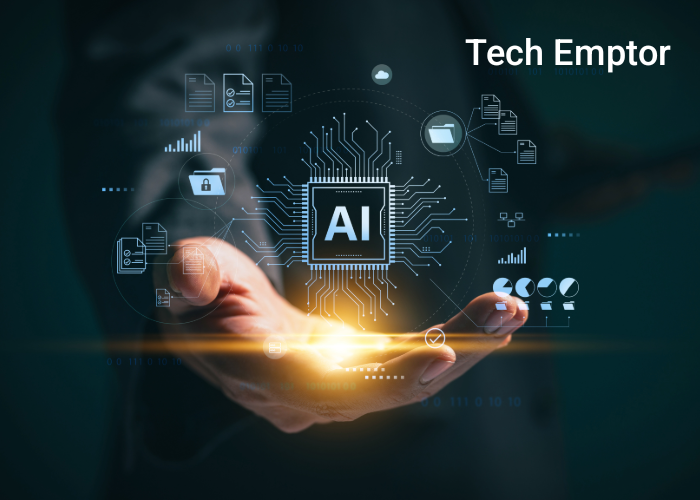
AI Tools for Business Analysts: In today’s fast-paced business environment, the role of a business analyst has evolved dramatically. Traditionally, business analysts relied on manual processes and basic analytics tools to gain insights from data. However, the advent of Artificial Intelligence (AI) has revolutionized the way business analysts work. This article will explore how AI tools for business analysts are transforming decision-making processes, increasing efficiency, and delivering more accurate insights.
The Role of AI in Business Analysis
As businesses generate more data than ever before, the need for AI-driven tools has become essential for modern business analysts. AI tools for business analysts assist in automating data collection, providing real-time analysis, and generating predictive insights. These tools not only save time but also improve accuracy, allowing analysts to focus on higher-level tasks, such as strategy development.
AI has become an essential component for business analysts due to the increasing complexity of data. From automating mundane tasks like data cleaning to providing predictive insights, AI tools have enabled analysts to work smarter, not harder.
Benefits of AI Tools for Business Analysts
AI tools bring several benefits to the table, making them indispensable for business analysts. Some of these benefits include:
1. Automated Data Processing
Manual data processing is not only time-consuming but also prone to errors. AI tools for business analysts automate this process, ensuring clean, structured data ready for analysis.
2. Enhanced Data Insights
AI-driven tools can analyze vast amounts of data in a fraction of the time a human can. These tools use machine learning algorithms to spot trends, patterns, and anomalies that would be difficult to detect manually.
3. Predictive Analytics
One of the most exciting uses of AI tools for business analysts is in predictive analytics. These tools use historical data to predict future trends, enabling businesses to make proactive decisions.
4. Real-time Data Analysis
In today’s fast-paced business environment, real-time data analysis is crucial. AI tools provide live insights, helping businesses react swiftly to market changes or operational challenges.
5. Natural Language Processing (NLP)
Many AI tools now incorporate Natural Language Processing (NLP), which enables business analysts to gain insights from unstructured data sources like social media, customer reviews, and emails.
Top AI Tools for Business Analysts

Let’s dive into some of the top AI tools for business analysts that are leading the market.
1. Power BI with AI Capabilities
Power BI, Microsoft’s business analytics tool, has integrated AI capabilities that allow business analysts to automate data insights, create predictive models, and use natural language to query data.
2. Tableau + Einstein AI
Salesforce’s Tableau, combined with Einstein AI, allows business analysts to uncover insights through machine learning. Its easy-to-use interface makes it ideal for exploring vast datasets without needing in-depth coding skills.
3. SAS Advanced Analytics
SAS provides a robust suite of AI tools for business analysts, including predictive modeling and machine learning tools. It’s particularly useful for industries that rely heavily on statistical analysis.
4. Alteryx
Alteryx is known for its data preparation, blending, and advanced analytics capabilities. Business analysts can use its AI-driven tools to automate complex data workflows, making it an excellent tool for data-driven decisions.
5. IBM Watson Analytics
IBM Watson offers AI-driven insights to business analysts through its advanced natural language processing and machine learning capabilities. It helps turn raw data into actionable business strategies.
6. RapidMiner
RapidMiner is a platform for data science and machine learning that is widely used by business analysts to build predictive models. Its easy-to-use interface allows even those without coding experience to leverage AI.
How AI Tools Are Shaping the Future of Business Analysis
AI tools for business analysts are not just a trend—they are shaping the future of the profession. As businesses face increasing competition, the ability to quickly and accurately analyze data has become a strategic advantage. Here’s how AI tools are setting the stage for future business analysis:
1. Increased Automation
AI will continue to automate repetitive tasks, freeing up business analysts to focus on more strategic initiatives.
2. Better Decision-Making
With AI tools providing more accurate and faster insights, business analysts will play an even more critical role in decision-making processes.
3. Collaboration Between AI and Human Analysts
AI will not replace human analysts but rather complement them. The future will see more collaboration between AI and human decision-makers, with AI providing data-driven insights and humans offering contextual judgment.
Challenges in Implementing AI Tools for Business Analysts
Despite the numerous benefits of AI tools, there are several challenges that businesses may face when implementing them:
1. Data Privacy and Security
With increasing reliance on AI tools, businesses must ensure that data privacy and security are prioritized. AI models can inadvertently introduce bias or expose sensitive data if not managed correctly.
2. Cost of Implementation
AI tools can be expensive to implement, particularly for small and medium-sized businesses. This includes not only the cost of the tools themselves but also the training required for staff to use them effectively.
3. Lack of AI Expertise
Many businesses may struggle to adopt AI tools due to a lack of in-house expertise. Business analysts may need to acquire new skills to leverage AI effectively.
Best Practices for Business Analysts Using AI Tools
Here are some best practices for business analysts to follow when adopting AI tools:
1. Start Small
Rather than implementing AI tools across the entire business at once, start with smaller projects. This allows for testing and refining the tools before scaling up.
2. Continuous Learning
AI technology is constantly evolving, so it’s essential for business analysts to keep learning and staying updated on the latest tools and techniques.
3. Collaboration with IT Teams
Business analysts should work closely with IT teams to ensure smooth integration of AI tools into existing systems.
4. Understand the Limitations
While AI tools are powerful, they are not perfect. Business analysts should understand the limitations of these tools and use them in conjunction with human judgment.
Conclusion
The integration of AI tools for business analysts has redefined the profession, allowing for more efficient, data-driven decision-making. As AI technology continues to evolve, it will further transform how business analysts operate, providing more profound insights and enabling quicker actions. Businesses that invest in these tools now will be better positioned to remain competitive in the future.
FAQs
1. What are AI tools for business analysts?
AI tools for business analysts are software solutions that leverage artificial intelligence to assist in data collection, analysis, and predictive modeling.
2. How do AI tools benefit business analysts?
These tools automate data processing, provide real-time insights, offer predictive analytics, and help analyze unstructured data, significantly improving the efficiency of business analysts.
3. Which AI tools are most popular among business analysts?
Some of the most popular AI tools for business analysts include Microsoft Power BI, Tableau, SAS, Alteryx, IBM Watson, and RapidMiner.
4. Do business analysts need programming skills to use AI tools?
Not necessarily. Many AI tools offer user-friendly interfaces that do not require advanced programming skills, although some understanding of coding can be beneficial.
5. What challenges do businesses face when implementing AI tools for business analysts?
Common challenges include high implementation costs, data privacy concerns, and a lack of in-house AI expertise.
Read Also: Best AI Tools for Students in 2024
